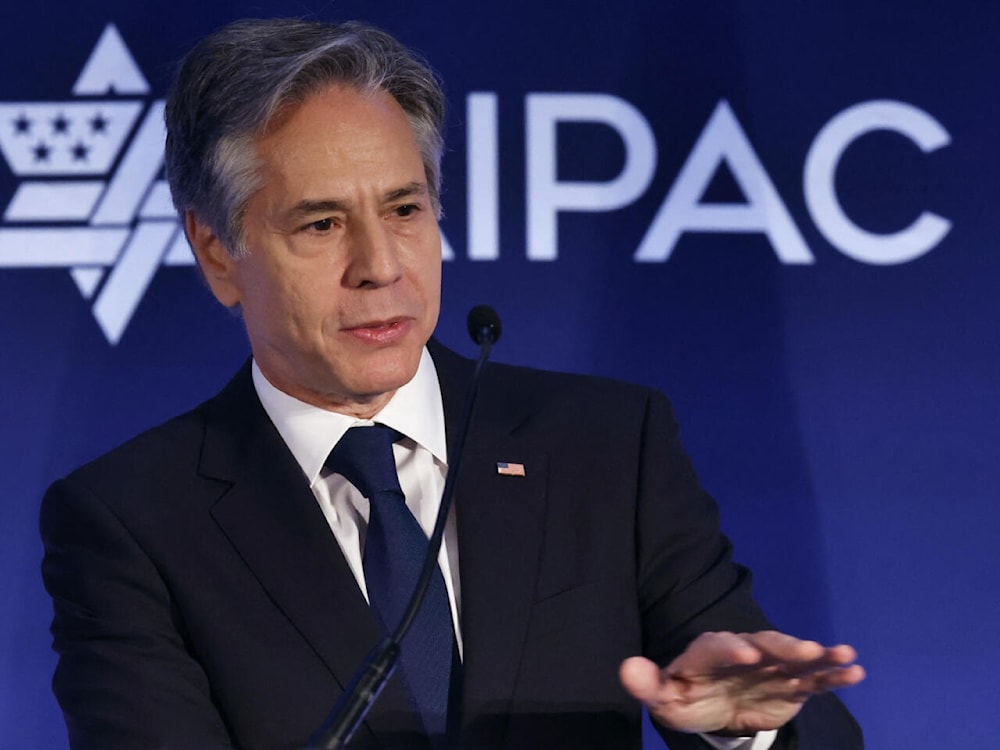Blinken to visit Riyadh, Egypt for talks on Gaza war, post-war plans
US Secretary of State Antony Blinken is set to discuss post-war plans "ensuring Hamas can no longer govern" Gaza.
-

US Secretary of State Antony Blinken addresses the American Israel Public Affairs Committee (AIPAC) annual policy summit in Washington on June 5, 2023 (AFP)
US Secretary of State Antony Blinken is scheduled to make his sixth Middle East trip since last October coming from the Philippines, to visit Saudi Arabia and Egypt and discuss several key issues, primarily the ongoing Israeli war in Gaza, increasing aid entry to the besieged Strip, and ceasefire efforts.
Blinken will also discuss "a political path" for the Palestinian people with "security assurances with Israel, and an architecture for lasting peace and security in the region," State Department spokesperson Matthew Miller said on Tuesday.
Read more: Gaza Resistance showers Israeli military positions with rockets
"The Secretary will discuss efforts to reach an immediate ceasefire agreement that secures the release of all remaining hostages, intensified international efforts to increase humanitarian assistance to Gaza, and coordination on post-conflict planning for Gaza, including ensuring Hamas can no longer govern or repeat the attacks of October 7," Miller added.
The statement added that Blinken will also address the Yemeni operations in the Red Sea and the Gulf of Aden.
Read more: Palestinian, Yemeni Resistance meet for collective action: Exclusive
This comes a day after Israeli Mossad Chief, David Barnea, was set to meet Qatari Premier, Mohammad bin Abdulrahman Al Thani, and a senior Egyptian envoy, AFP reported citing sources.
Previous efforts to reach a prisoner exchange agreement and a ceasefire failed as the Israeli occupation refused to end the war among other demands provided by the Resistance.
Earlier, on March 15, the Islamic Resistance Movement - Hamas announced that it had presented to mediators in Qatar and Egypt a comprehensive vision regarding its stance on halting the aggression on the Gaza Strip and the issue of prisoner exchange with the Israeli occupation.
The movement emphasized in a statement that this comes as part of its follow-up to negotiations through intermediaries to halt the Israeli aggression, provide relief and assistance to the Palestinian people in Gaza, facilitate the return of the displaced to their homes, and the complete withdrawal of occupation forces from the Strip.
In its statement, it stressed that its vision is based on these principles and foundations, which it considers vital for any agreement, and that it will remain committed to the rights and concerns of the Palestinian people.

 3 Min Read
3 Min Read








